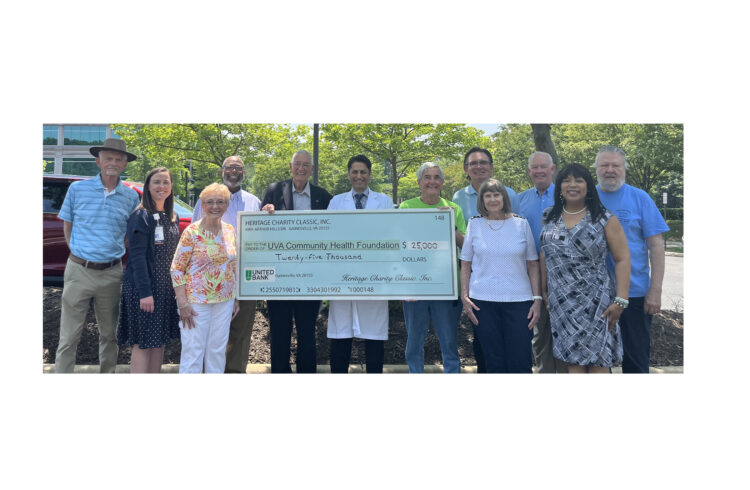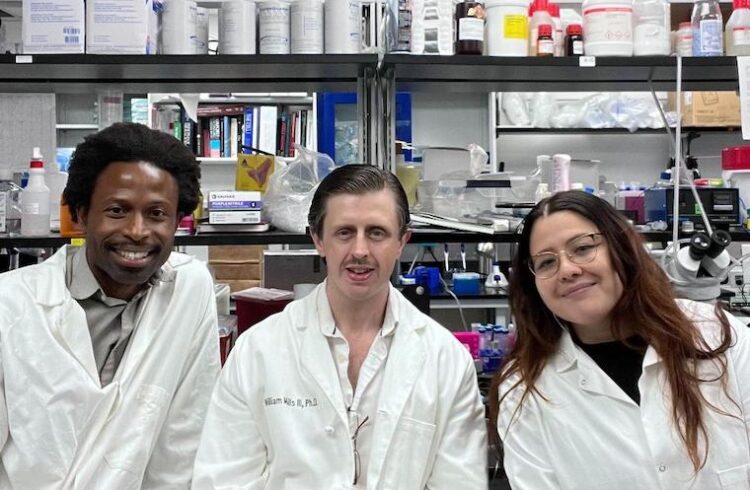
The School of Medicine is testing a "mixed reality" driving simulator to see if it can help people with autism and other novice drivers become safer behind the wheel.
The next destination for the University of Virginia School of Medicine’s efforts to help people with autism learn to drive: virtual reality.
Daniel J. Cox, PhD, a researcher with UVA’s Department of Psychiatry, has been using a room-sized driving simulator to assist people with autism-spectrum disorders in becoming comfortable behind the wheel. But now he is taking his simulator to the next level by turning it into a portable, “mixed-reality” experience.
Instead of users having to travel to the simulator in UVA’s Driving Safety Laboratory, the simulation could go home with them in the form of a VR headset, Cox says. That could dramatically expand the simulation’s reach, helping more people learn to drive.
“Our simulator is too big, too costly and too sophisticated and complicated to be exported extensively. So now we’ve come up with what they call a ‘mixed-reality, head-mounted display simulator,’” Cox said. “It takes the same road course that we’ve developed … and displays that. But on the goggles what we’ve done is mount two cameras that films the driver’s hands on the steering wheel. It mixes reality with the virtual world, so you can see your hands and feet in this immersive world. It’s like using our simulator without the need for the simulator.”
High-Tech Driving Simulation
Cox’s full-sized simulator at the Driving Safety Laboratory mimics the cabin of a car. It features a seat and a steering wheel and pedals and all the controls needed to drive. These are surrounded by large screens that provide a panoramic view as the user travels through a virtual city, navigating traffic and changing road conditions. The experience is very immersive, and unexpected events can be unnerving even for those experienced behind the wheel.
The simulator allows novice drivers to become accustomed to both the familiar and unpredictable aspects of driving. It can also help families assess how the driver will fare on the open road. Many people with autism can become safe drivers with the proper training, Cox says, noting that the lack of a driver’s license can be a major barrier for finding employment and independent living.
To expand the reach of the simulator, Cox is testing the new, portable incarnation. If successful, the mixed-reality versions could offer many benefits: They can be purchased far less expensively than a full driving simulator, for example, and don’t require a trained technician to operate. Users might also be able to spend more time training with them in their own homes.
To gauge the usefulness of the approach, Cox and Dr. Einar T. Ingvarsson at the Virginia Institute of Autism are enrolling novice drivers, both those who are neurotypical and those with autism-spectrum disorders, in a clinical trial through the end of the year. Participants will use and rate the mixed-reality headsets and then compare them with their experiences with the room-size simulator. The researchers will also compare the performance of the neurotypical and ASD drivers on the two formats.
About the Autism Driving Study
To learn more about the clinical trial, call (434) 924-5913. The work is being supported by a $60,000 grant from UVA’s Supporting Transformative Autism Research program.
Cox says the trial will offer important insights that will benefit the effort to help more people with ASD learn to drive safely, as well as other novice drivers.
“This is a very exciting possibility, bringing a high-tech approach to aid driving skills, comfort and safety to all sorts of novice drivers in a convenient and cost-effective manner,” Cox said.
To keep up with the latest medical research news from UVA, subscribe to the Making of Medicine blog.
MORE: Cox tests "radically different" approach to managing type 2 diabetes.



